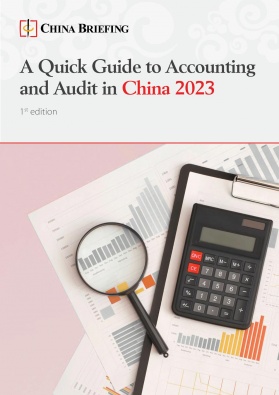How to Sell to Chinese Consumers Through Cross-Border E-Commerce Platforms
China’s e-commerce market is booming, and demand for foreign imported products will continue to rise as China’s middle class grows. From a policy perspective, China is actively expanding cross-border e-commerce by establishing bonded areas and e-commerce pilot zones, which facilitate the import and export of goods. To help foreign merchants seize this opportunity, we provide an overview of the requirements, regulations, and platforms through which to sell to China online.
China is the world’s largest e-commerce market. In 2021, cross-border e-commerce (CBEC) imports and exports reached a total of RMB 1.98 trillion (US$277.3 billion), a year-on-year growth rate of 15 percent.
China has also been actively promoting the development of CBEC for many years, expanding the number of CBEC pilot zones to reach a total of 132 across the country.
Moreover, as standards of living rise in China, the consumer base for CBEC – and imported products – will only continue to grow. CBEC also offers a much more accessible and straightforward means of reaching Chinese consumers, with fewer administrative hurdles and streamlined application procedures offered by China’s booming e-commerce platforms.
To help foreign companies seize on the opportunity of China’s growing cross-border e-commerce market, we provide a brief guide to the platforms, requirements, and processes to start selling products to Chinese consumers.
How and where do Chinese consumers buy imported products?
Chinese consumers generally buy imported products the same way they do all other online shopping – on their phones. Mobile applications have a much higher penetration rate in China than web pages, and most brands will have both their own standalone apps as well as mini-programs integrated into WeChat and other super-apps (more on this below).
There is a vast range of platforms dedicated to importing products for Chinese consumers. Some of China’s largest e-commerce platforms, such as TMall (owned by Alibaba) and JD.com run platforms specifically for consumers to buy overseas products and services.
Some of the most popular platforms for buying imported products are TMall Global (天猫国际), Kaola (考拉海购), JD Worldwide (京东国际), Ymatou (洋码头), and Amazon Global (亚马逊海外购).
Do I have to establish a domestic entity to sell to China?
You do not need to establish a legal entity to set up and run an online store on an international e-commerce platform to sell products and services to Chinese consumers. Prominent international e-commerce platforms are TMall Global, Amazon Global, and JD Worldwide.
However, most e-commerce platforms will require business registration from another country, and may also ask for information on your company and brand, including sales, websites, product information, and more. For this reason, it is advisable that you already have an established business in another country before you start trying to sell your products in China, rather than launching a new China-only business.
To sell products on a domestic Chinese e-commerce platform (including the domestic versions of the international e-commerce platforms), you will need to set up a legal entity in China.
There may come a time when it would be beneficial to set up a legal entity in China, even if it is not required. Whether or not you choose to set up a legal entity will depend on how big your operations are and how invested in the Chinese market you want to be. If you wish to expand operations after finding initial success, an established presence in China may make larger operations easier. Before doing this, however, you can also choose to hire some local employees via a local agency to help with administrative matters and other on-the-ground operations, which you do not need to have a legal entity to do.
Although foreign merchants are not required to set up a legal entity in China, they are required by law to entrust a company to handle industrial and commercial registration in China. This company will undertake responsibilities, such as registering with China customs and undertaking liabilities, ensuring truthful and accurate declarations, and accepting supervision by relevant authorities, among others.
Many of the e-commerce platforms will offer services to help merchants connect with local companies or may act as the local company that undertakes these liabilities. If the platform does not provide these services, you may have to find a local company yourself or hire an agency to handle these matters.
What kind of products can I sell to China through CBEC?
The types of products that can legally be imported into China are listed in the Cross-Border E-Commerce Retail Import Commodities List (the “CBECWhitelist”). This list was last updated at the beginning of 2022 to add 29 new items on the list that are in demand for Chinese consumers, including ski equipment, dishwashers, and tomato juice.
The 2022 edition of the CBEC Whitelist contains 1,476 items, including various types of fresh and dry food products, cosmetics, garments, furniture, white goods, and electronics.
In addition to the CBEC Whitelist, merchants must also comply with a range of other regulations and catalogues for import products. These include:
- Measures for the Safety Administration of Imported and Exported Food
- Import and Export of Wild Animal and Plant Species Commodity Catalogue
- List of Toxic Chemicals Strictly Restricted in China
It is also important to consult the Catalogue of Goods Prohibited from Import to ensure that your products are not prohibited in China. This is a list of 75 products that are illegal to import into China, and includes cosmetics and pesticides that contain certain components, such as mercury.
How do I sell to China through CBEC?
The most direct way to sell products to Chinese consumers is by setting up a storefront on an international e-commerce platform. This will require some level of expertise and language skills as you will need to localize your product information, marketing materials, and other online communication materials so that your Chinese customers can navigate your store. If you do not already have a person who knows Chinese on your team, you may choose to hire a person in China to handle the Chinese language aspects of the operations or outsource your translation and customer service requirements.
Alternatively, you can choose to sell your products to a wholesaler or directly to the platform, which can then take over the management of subsequent operations. Platforms such as TMall Global, JD Worldwide, and Kaola all provide wholesale or supplier services for overseas merchants. By choosing this route, you will essentially outsource all operations to the platform, requiring less work on your side.
It is also important to carefully choose which platform to sell your products on, as different platforms will specialize in different products.
How can foreign sellers set up an online store to sell to Chinese consumers?
The process for setting up a store will differ slightly on the various platforms and may involve contacting the platform’s service teams. Some of the platforms also don’t have an English version of the platform, so if no one on your team can read Chinese, you may need to employ a third-party agency to help you get set up.
Below we provide an overview of how to set up online stores to sell to Chinese consumers on some of the main e-commerce platforms.
TMall Global
The Alibaba-owned TMall Global is the international version of the popular TMall e-commerce platform. To set up a store on TMall Global, you must submit an application to check whether your products and brand are eligible. Currently, the only product categories available for overseas sellers are:
- 3C products (computer, communication, consumer electronics)
- Cosmetics
- Fashion
- Food
- Health
- Home
- Mother and babycare
- Personal care
- Pet products
The eligibility criteria are somewhat opaque, and ask simply for the products and brands to be “high quality”.
If the application is successful, you will be able to activate an Alipay Global account to accept payments and launch your store. You will also be required to pay a security deposit of US$25,000 and an annual fee of between US$5,000 and US$10,000, depending on your product category. Interested merchants can apply to set up a storefront here.
Alternatively, if you do not want to handle sales yourself, you can choose to sell your products to the TMall Direct Import team, which will then manage operations in China. The initial application procedure for the store can be done here.
JD Worldwide
JD Worldwide’s Import Business connects overseas suppliers with consumers in China through the JD.com platform, by enabling overseas merchants to open an online store to sell to Chinese consumers.
In addition, merchants can also choose to become suppliers for JD.com if they don’t want to sell their own branded products.
To set up an online store through JD Worldwide or become a supplier, you must submit an application by filling in an online form here. You will be required to provide a range of information on your company, including a description of your brand, current sales channels, and current annual revenue. If the application is successful, you will also be required to pay a deposit of between US$10,000 and US$30,000 depending on the product category, as well as a service fee of US$1,000 to the platform.
Kaola
Kaola is an e-commerce platform for imported goods founded by NetEase in 2015 and subsequently bought by Alibaba in 2019. The platform specializes in importing products that are in high demand, such as food and beverage, sportswear, apparel, electronics, and cosmetics.
Overseas merchants are not required to have an established entity in China but do need business registration in their home country.
Kaola currently does not have an English landing page. However, as foreign merchants are required to entrust a third-party company in China to handle industrial and commercial registration and customs-related matters – as discussed above – this company can also help to handle account registration procedures and navigate the Chinese language materials.
Kaola requires a deposit of RMB 50,000 (US$7,002) for general trade and US$15,000 for bonded, direct mail, and other trade model merchants. For certain products, the deposit may be higher – up to RMB 300,000 (US$42,015) for healthcare services. The platform also charges a technical service fee of between 0.6 percent and 10 percent, depending on the product.
Amazon Global
Although Amazon was forced to close its domestic China operations due to fierce competition from local competitors, it is now looking to bring its international e-commerce business to Chinese consumers. Earlier this year, the company announced it is opening a bonded warehouse in the eastern city of Ningbo for import goods. The warehouse will enable Amazon to connect Chinese consumers with its UK and German platforms, however, its online seller platform does not yet allow sellers to select China as a country to ship to.
How do I handle shipping and logistics for CBEC?
There are two main ways to ship products via CBEC to China – direct shipping or shipping via a bonded warehouse.
The direct shipping route allows you to send the products directly to the end consumer in China from a warehouse located outside of China. This method will take longer to ship to the consumer and will require you or your agency to handle matters such as applying for import licenses and customs clearance. However, some Chinese consumers prefer to buy imported products that have been shipped directly from overseas as they may be skeptical of the authenticity of a product shipped from a warehouse in China.
Through the bonded warehouse route, you ship your product in bulk to a bonded warehouse in China, and the items are then shipped to the end consumer from this warehouse. This route does not require customs clearance or import licenses as your products are pre-declared. Shipping on the China side is usually handled directly by the warehouse and the e-commerce platform.
Which option you choose will depend on your objectives. The bonded warehouse route may be preferable for companies that are seeking to get a firmer foothold in the China market, whereas the direct shipping route may be better when exploring market potential and opportunities. You may also choose both options for different products or target consumers.
What are the benefits and drawbacks of selling via CBEC?
The benefit of selling to Chinese consumers directly via CBEC is that there are very few administrative hoops to jump through, and in many cases, an online store can be launched in just a matter of months. In addition to not requiring a legal entity in China, you also do not need to apply for the various import licenses and customs clearances if you choose to ship products via dedicated bonded warehouses in China. Many of the platforms also provide support for merchants in handling many of the administrative affairs, such as customs registration and clearance procedures.
In addition, single e-commerce transactions that are valued at below RMB 5,000 or total annual e-commerce transactions valued at below RMB 26,000 are exempt from import tariffs and can enjoy a 30 percent VAT reduction. This makes selling through CBEC more affordable for smaller merchants, although the preferential tax reductions are not available for larger merchants as the value limits are relatively low.
Finally, by selling through an e-commerce platform, merchants can get paid in their preferred currency, while the customer pays in RMB.
The trade-off is that the platforms require relatively large security deposits as a means of managing the risk they take on in hosting products from a foreign entity. Not all products can be sold via CBEC – which is limited to the products listed in the CBEC Whitelist – which means that for certain products, you will have to go through traditional channels to sell them in China.
About Us
China Briefing is written and produced by Dezan Shira & Associates. The practice assists foreign investors into China and has done so since 1992 through offices in Beijing, Tianjin, Dalian, Qingdao, Shanghai, Hangzhou, Ningbo, Suzhou, Guangzhou, Dongguan, Zhongshan, Shenzhen, and Hong Kong. Please contact the firm for assistance in China at china@dezshira.com.
Dezan Shira & Associates has offices in Vietnam, Indonesia, Singapore, United States, Germany, Italy, India, and Russia, in addition to our trade research facilities along the Belt & Road Initiative. We also have partner firms assisting foreign investors in The Philippines, Malaysia, Thailand, Bangladesh.
- Previous Article China and Hong Kong’s Bilateral Trade and Investment Outlook with Qatar
- Next Article La Cina approva una nuova legge sulla protezione delle donne: I punti chiave per i datori di lavoro








